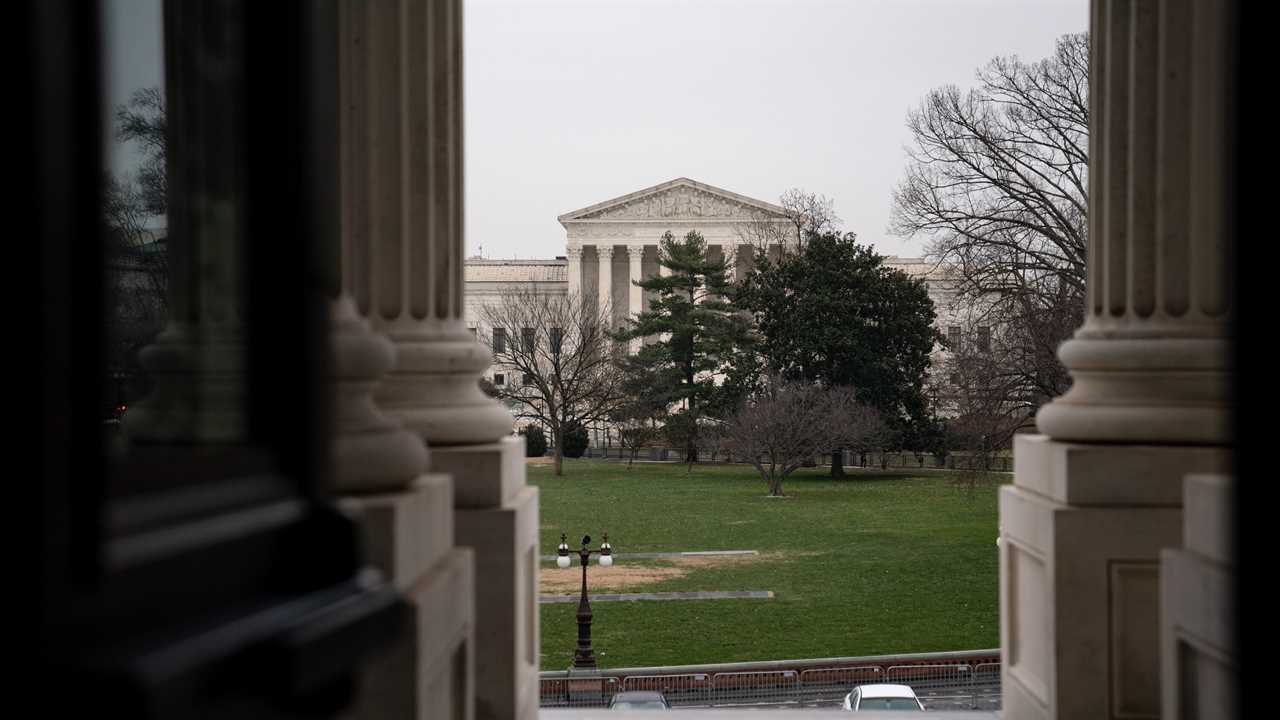
WASHINGTON — The Supreme Court on Thursday refused to exempt religious schools in Kentucky from an order from Gov. Andy Beshear that temporarily shut down all elementary, middle and high schools, whether public or private, in an effort to combat the coronavirus pandemic.
The court’s brief, unsigned ruling stressed that the order from Mr. Beshear, a Democrat, would not be in place much longer. “The governor’s school-closing order effectively expires this week or shortly thereafter, and there is no indication that it will be renewed,” the court’s opinion said.
It added that the challengers had not squarely confronted an important distinction. “The order applies equally to secular schools and religious schools, but the applicants argue that the order treats schools (including religious schools) worse than restaurants, bars and gyms, for example, which remain open,” the opinion said.
“Under all of the circumstances, especially the timing and the impending expiration of the order,” the opinion said, “we deny the application without prejudice to the applicants or other parties seeking a new preliminary injunction if the governor issues a school-closing order that applies in the new year.”
Justices Samuel A. Alito Jr. and Neil M. Gorsuch each filed a dissent that was joined by the other. Justice Alito said the Supreme Court should have acted sooner to address the challengers’ application and said the courts could still address it.
“As things now stand,” Justice Alito wrote, “this action remains on the docket of the district court. If the governor does not allow classes to begin after the turn of the year, the applicants can file a new request for a preliminary injunction, and if the lower courts do not provide relief, the applicants may of course return to this court.”
Justice Gorsuch said the majority had invited political gamesmanship. The governor, he wrote, should not “be able to evade judicial review by issuing short-term edicts and then urging us to overlook their problems only because one edict is about to expire while the next has yet to arrive.”
The preferable approach, he said, would have been to require the appeals court to resolve the case now under the correct legal standards. That, he wrote, would “be better for everyone — from the parents who might have to miss work and stay home should decrees like these be upheld, to the state public health officials who might have to plan for school if they are not.”
The decision in the Kentucky case followed a series of rulings from the Supreme Court on state restrictions on religious services at churches and synagogues. The court had sustained such limits while Justice Ruth Bader Ginsburg was alive but changed course after she was succeeded by Justice Amy Coney Barrett.
The Kentucky case presented a related but distinct issue. In ordering the temporary closure of all K-12 schools, Mr. Beshear did not single out religious ones.
In a lawsuit challenging the order, Danville Christian Academy and Daniel Cameron, the state’s attorney general, a Republican, said that it did not matter that all schools were treated the same, as religious education was still subject to stricter restrictions than comparable secular activities. That violated constitutional protections for the free exercise of religion, they said.
Judge Gregory F. Van Tatenhove of the Federal District Court in Frankfort, Ky., agreed. “In an effort to do the right thing to fight the virus,” Judge Van Tatenhove wrote, “the governor cannot do the wrong thing by infringing protected values.”
“This court wonders why, under this executive order, one would be free to attend a lecture, go to work or attend a concert, but not attend socially distanced chapel in school or pray together in a classroom that is following strict safety procedures and social distancing,” the judge wrote. He issued an injunction overriding Mr. Beshear’s order and opening religious schools.
A unanimous three-judge panel of the United States Court of Appeals for the Sixth Circuit, in Cincinnati, stayed Judge Van Tatenhove’s ruling, lifting his injunction while an appeal moved forward. In an unsigned opinion, the panel said that a recent Supreme Court ruling striking down limits on attendance at religious services in New York “does not compel a contrary result.”






